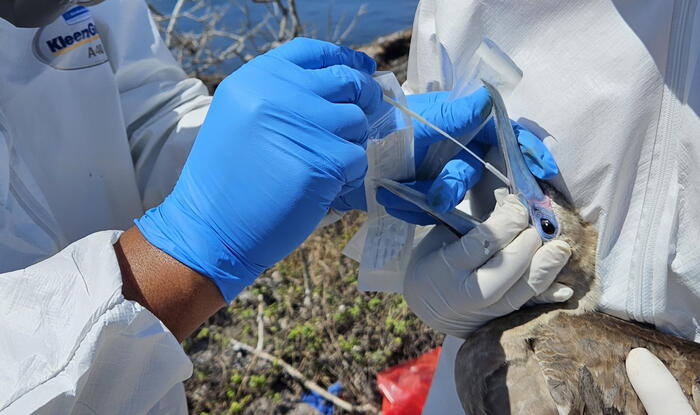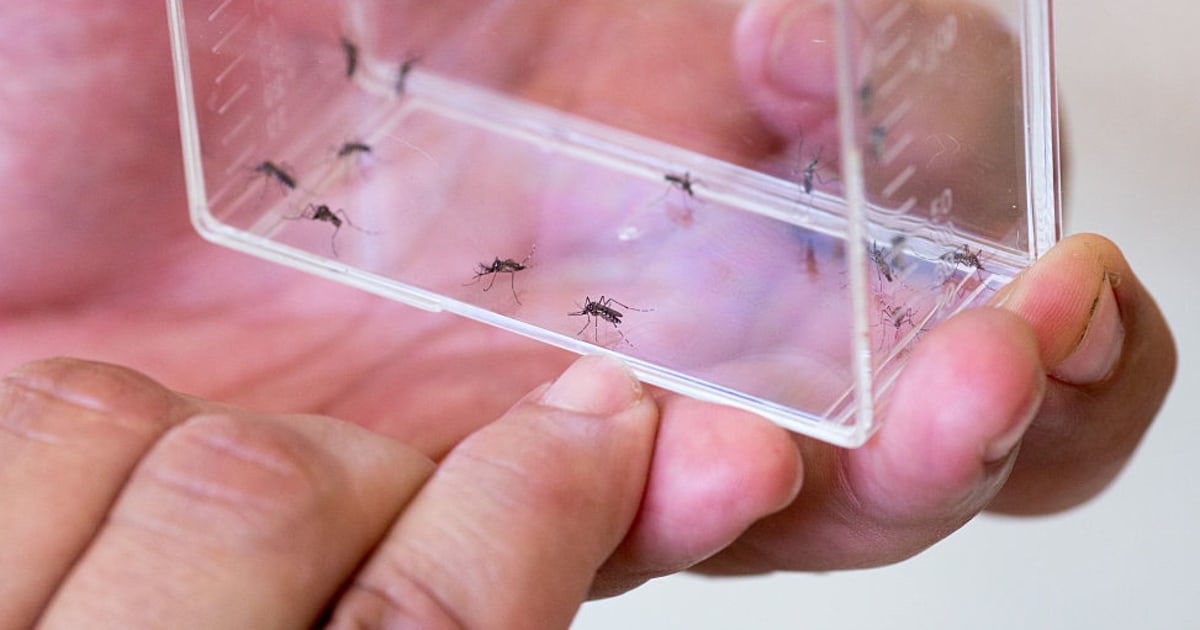General alert.
This Thursday's European Summit marked the beginning of a tightening of restrictions on freedom of movement within the European Union, as a way to try to stop the spread of new variants of the virus.
The decision came after the European Center for Disease Prevention and Control (ECDC) yesterday raised the alarm level about new strains and recommended restricting mobility as much as possible, avoiding "non-essential travel ”And ask countries to prepare their health systems for a foreseeable escalation of cases.
As soon as the summit ended, countries such as France and Belgium announced new measures to prevent the passage of travelers from high-risk areas.
The telematic meeting of the Presidents of Government of the Union, called by the President of the European Council, Charles Michel, which concluded around eleven o'clock at night, aimed to coordinate a common response to the spread of these new variants and avoid a situation chaotic as experienced during the first wave.
European capitals pledged to create a new category of particularly affected epidemiological zones (dark red in the traffic light produced by the ECDC) in which it will be possible to restrict non-essential movements.
The final decision will fall on the member states, but it will be the European Commission who will draw up the architecture in the coming days to limit movements.
These will not necessarily affect the borders of the countries, but zones with a similar epidemiological situation may be isolated, which may involve two or more countries, and must respect the free movement of essential workers and the passage of basic goods.
Both the President of the Council, Michel, and the President of the Commission, Ursula von der Leyen, expressed the importance that the restrictions can be “reinforced” with “specific measures” in case of need in the face of a situation that they described as “worrying” due to the dreaded advance of mutations.
In its risk report, the ECDC considers "very high" the probability of "introduction and community spread" of the new British, South African and Brazilian variants of coronavirus in the EU "due to their greater transmissibility".
And it warns of the possibility that the number of infections will grow, which could put health systems in trouble, as is happening in the United Kingdom.
UK doubts its vaccination strategy as deaths accelerate
"We are seeing how the epidemiological situation deteriorates in areas where the most transmissible variants of the virus are found," said Andrea Ammon, ECDC director, on Thursday.
"The increase in the number of infections will cause an increase in the rates of hospitalization and mortality in all age groups, especially those of older age or those with comorbidities."
The agency's warning comes at a time of
impasse
in which transmission is "widespread", but with most countries "experiencing stable or declining case rates."
The absolute numbers of infections are high, growing in older age groups, mortality rates are also on the rise, and so are hospital admissions and ICU admissions in a third of countries, according to the latest ECDC data, up to January 17.
Since last week, the ECDC has been warning that 13 countries have seen increasing rates of infections, more than double than in the previous seven days.
And it warned that it would "increase in the coming weeks."
The report on the new variants reflects this concern, recommends avoiding non-essential travel and calls on countries to prepare “their health systems for a new escalation”, increase their capacity to sequence new mutations and accelerate the vaccination of people risk and key workers, issues also supported by leaders at the summit
Surgical closures
Hans Kluge, director for Europe of the World Health Organization, considers a surgical intervention on borders to be successful in the face of a sharp veto to the movements.
"The closing of borders to stop the new variants only makes sense as soon as the variant is identified and when its transmission is local."
Yesterday's virtual meeting, the first summit of 2021 on the pandemic, became the forum to discuss an additional battery of measures to try to contain the escalation before it is too late.
Among them, the member states agreed to accept the recommendation to strengthen the use of rapid antigen tests and mutual recognition of PCR test results in all member countries.
And the Twenty-seven were unanimous in speeding up vaccination programs.
The Spanish President, Pedro Sánchez, who defended keeping the borders open, supported the creation of a vaccination certificate for those immunized.
Vaccination certificates and more agile campaigns
Among the measures that EU leaders discussed this Thursday at the summit to deal with covid-19, one of the key points on the agenda was the evolution of vaccination campaigns.
Since the first vaccine was injected in the EU on December 27, more than 13 million doses have been sent to Member States and more than five million of them have been administered, according to a Commission communication published this week , although with notable differences between countries.
But the Community Executive has come to the meeting with a specific proposal: immunize 80% of people over 80 years old and 80% of health personnel before April, and 70% of the general population until the summer.
“The Commission has only wanted to set an ambitious target.
We will all try together.
But in the end, it is the Ministries of Health of each member state that have to set their own course, "said a diplomatic source before the meeting.
Hans Kluge, WHO director for Europe, believes that the priority should be “to maintain a homogeneous pan-European progression in vaccine coverage, with equal access in all countries”.
That has been the objective of the Commission since it launched the joint purchases to prevent any partner from being left off the hook.
"Remaining together the 27 in vaccines has been the best choice," recalled on Wednesday Úrsula von der Leyen, president of the Commission, who boasted of having secured the "largest portfolio of vaccines in the world."
Another issue to be addressed is that of vaccination certificates, a discussion that has been gaining ground in Brussels, driven by countries that are already looking at the summer tourism campaign and whose negotiation is still in the embryonic phase.
"The intention is to start working on it," according to an EU source.
But the debate is still premature, since the percentage of the vaccinated population is low and there are still unknowns: "We still do not know if vaccination implies that you are no longer a carrier of the virus," according to this source.
Along the same lines, Kluge considers the possibility of the so-called passport for vaccinated people “very premature”, but considers that, over time, “we will see that these certificates become part of the essential documentation for travel, such as the DNI or the passport. ”.
Information about the coronavirus
- Here you can follow the last hour on the evolution of the pandemic
- Restrictions search engine: What can I do in my municipality?
- This is how the coronavirus curve evolves in the world
- Download the tracking application for Spain
- Guide to action against the disease





/cloudfront-eu-central-1.images.arcpublishing.com/prisa/LXJQLIHEEJDHBNVN45ZLQLAMJY.jpg)



